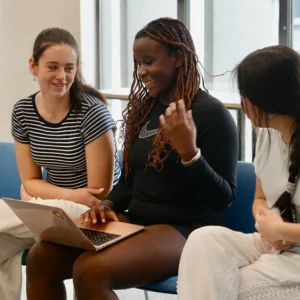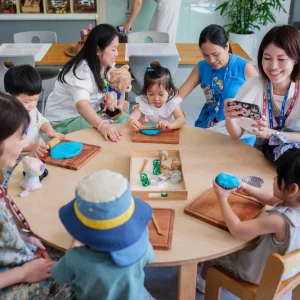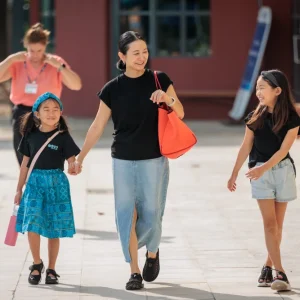Self-awareness is a crucial skill that every person should have, especially students who are discovering their true selves and their place in the world. As a result, it is every parent’s responsibility to assist and lead the way for their children to successfully gain that in their student years.
In this blog post, we will examine self-awareness skills for students, why they are an important skill for children, and how you, as a parent, can support your child’s development and set them up for success by assisting them in acquiring those skills.
What is self-awareness in kids?
In children, self-awareness refers to the ability to recognise and comprehend their thoughts, feelings, and behaviours. It entails being aware of one’s own and others’ strengths and weaknesses, as well as how one’s actions affect themselves and others.
Self-awareness skills in children are an essential part of their overall intellectual growth and development. It teaches them to navigate their relationships, make sound decisions, and pursue their passions with confidence, which helps them build a strong foundation for success in school and life.
The importance of self-awareness for students
Self-awareness is a skill that has a significant impact on a child’s personality, mindset, and overall well-being. Children can learn about who they truly are and their place in the world through self-awareness, allowing them to make better choices for themselves, their friends, as well as their academic careers.
This critical factor of self-awareness for students can be explained further in three ways:
Improved academic performance
Self-aware children are better able to identify their strengths and weaknesses to concentrate their efforts on subject areas that require additional practice and support. They are also better at making decisions for their academic path and dealing with the stress and pressure of schoolwork.

Students of all ages can benefit academically from self-awareness.
Therefore, by developing self-awareness skills, children can become more confident, resilient learners who are better able to reach their full potential in school and beyond.
Better decision-making skills
When children are self-aware, they are better able to understand the consequences of their actions on themselves and others, and as such, they can make more thoughtful and responsible judgments. They are also more likely to trust their instincts and less likely to be swayed by peer pressure or external factors.
By developing self-awareness skills, children can become more confident decision-makers and better equipped to navigate the challenges and opportunities of their academic days.
Increased empathy and social skills
On the one hand, self-aware children are more aware of their own emotions and can better understand those of others. This improved emotional intelligence can assist them in developing more empathy and understanding for their peers and family members.

On the other one, they are better able to communicate their needs and emotions as well. They are more likely to actively listen to and respond to others, which can lead to more positive interactions and deeper connections as they navigate the complexities of social relationships.
Ways to develop self-awareness skills
Now that you understand the significance of self-awareness for students, it is time to learn how to help your children develop this important life skill.
The four methods listed below can be used with your child, each with its value and benefit. In all of them, parents can improve the result by creating a safe and supportive environment, providing guidance and feedback as needed, and celebrating their children’s progress and successes along the way.
Journaling and self-reflection
Encouraging children to write down their thoughts, feelings, and experiences can assist them in identifying behavioural and emotional patterns, and determining their strengths, weaknesses, goals, and values.
Parents can also lead their children through exercises in self-reflection, such as asking open-ended questions about their experiences and encouraging them to think deeply about their responses.
Mindfulness practices
Paying attention to the present moment with curiosity and nonjudgmental awareness is what mindfulness entails. Parents can teach their children mindfulness practices such as meditation, breathing exercises, and mindful movement.
Children who practice mindfulness regularly can become more aware of their thoughts and emotions and learn to respond to them more constructively, resulting in a more grounded and calm state.
Through mindfulness practices, children can become more self-aware, develop greater emotional regulation skills, better manage stress and anxiety, and make more mindful decisions.
Seeking feedback from others
Motivate children to seek feedback from teachers, coaches, peers, and family members to gain a better understanding of how others perceive them, identify areas for improvement, and build on their strengths. It can also assist them in developing a more accurate self-image and becoming more conscious of their impact on others.
For better results, parents can model their children how to receive constructive feedback.
Identifying personal values and beliefs
Encouraging children to investigate their values and beliefs can help them better understand what is important to them and what motivates their behaviours and decisions, allowing them to develop a stronger sense of purpose and direction in their lives.
To aid children to learn how, parents can assist their children in identifying their values and beliefs, investigating how these factors influence their thoughts and actions, and encouraging them to live by those ideas. Parents can also set a powerful example for their children by living by their values and beliefs.
Cultivating self-awareness skills for students at UNIS Hanoi
Overall, self-aware students are better able to manage their emotions, make sound decisions, and have a stronger sense of empathy for others. These factors help students improve the quality of their academic years, whether it is through additional learning opportunities, making new friends, or treating old ones.
Because we strive to create a learning environment that inspires everyone, UNIS Hanoi has proudly layered self-awareness skills for students into our curricula to help our children and yours become better versions of themselves.
Apply today to make the resources and opportunities available at UNIS Hanoi a valuable treasure in your child’s journey toward self-awareness and empowerment.
Author Profile

- UNIS Hanoi is ever-evolving, but one thing that remains is our passion to nurture and equip students to be agents of change for a better world.
Latest entries
 Calendar, News and Publications30 Oct 2025What is an IB School? A Complete Guide for Parents
Calendar, News and Publications30 Oct 2025What is an IB School? A Complete Guide for Parents Calendar, News and Publications29 Oct 2025School Tour at UNIS Hanoi – A Comprehensive Guide for Parents
Calendar, News and Publications29 Oct 2025School Tour at UNIS Hanoi – A Comprehensive Guide for Parents Calendar, News and Publications28 Oct 2025How to Choose the Right School for Your Child: The 2025 Guide
Calendar, News and Publications28 Oct 2025How to Choose the Right School for Your Child: The 2025 Guide Calendar, News and Publications27 Oct 2025Student Recruitment at UNIS Hanoi: A Parent’s Comprehensive Guide
Calendar, News and Publications27 Oct 2025Student Recruitment at UNIS Hanoi: A Parent’s Comprehensive Guide